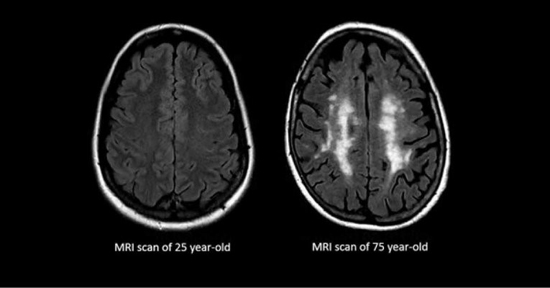Scientists May Have Just Found a Way to Prevent the Brain From Aging
A team of Stanford neuroscientists may have stumbled onto a way to prevent the brain from aging–and if the results of tests on old mice are any indicator, the research is promising

Hailed as a “stunning piece of research” by New Atlas, the study – published in peer-reviewed international journal Nature – managed to pinpoint a specific gene called CD22 that is responsible for cognitive loss resulting from aging. The gene, common to both mice and humans, apparently degrades certain cells’ ability to conduct normal brain activity. That same gene was found to be three times more prevalent among older mice than younger ones in follow-on experiments. With this data in mind, the researchers devised antibodies to block CD22–specifically, molecules that bind to proteins and can be generated in a lab.
The Stanford team then injected the antibodies into the hippocampus on one side of the brains of the test mice. After a month of injecting the CD22-blocking antibody into both sides of their brains, the mice that received the injection began outperforming their counterparts in various intelligence tests.
The researchers believe that this is because as we age, the microglia – the class of brain cells responsible for routine cleanup and immune responses – decline and lose their ability to engage in the sort of “maintenance” work that brains require.
In a statement, study author and professor of neurology and neurological sciences Tony Wyss-Coray said: “The mice became smarter … Blocking CD22 on their microglia restored their cognitive function to the level of younger mice. CD22 is a new target we think can be exploited for treatment of neurodegenerative diseases.”
This research could open the path to reverse a range of cognitive effects of aging–including such diseases as Parkinson’s and Alzheimer’s.
Wyss-Coray noted: “Many of the genes whose high-risk variants have recently been linked to Alzheimer’s disease are known to be active in the brain only in microglia… Microglial genes’ activation patterns are abnormal in Alzheimer’s patients, and in other neurodegenerative disorders including Parkinson’s disease and amyotrophic lateral sclerosis.”
Yet the new research could be promising, especially when – or if – it eventually reaches human trials. The Stanford team remains optimistic, with Wyss-Coray noting: “We think we may have discovered a way to get these cells back on track and make them work the way they used to when we were young.”
yogaesoteric
June 19, 2019
